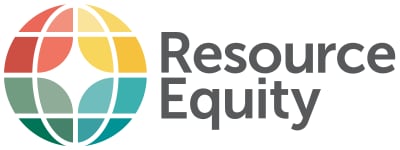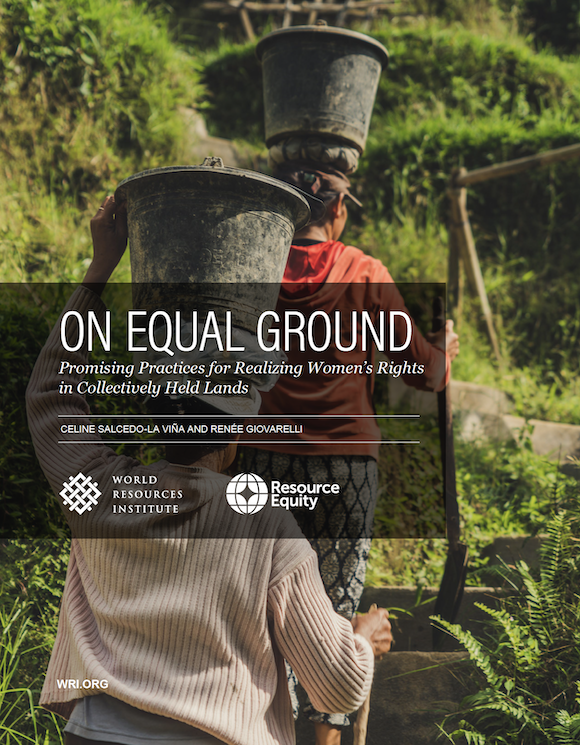Location
Resource Equity is a women-run and women-centered nonprofit organization that focuses exclusively on legal issues specific to gender equity in land and natural resources around the world.
Women-Focused, Community-Minded
When women have equitable rights to land and natural resources, they transform their entire communities for the better. With over forty years of collective experience, we engage in comprehensive field research, legal and evidence reviews, constituent interviews, and qualitative analysis that ensures the experiences, perspectives, and needs of women are always centered.
Expert Advocacy and Guidance
Through our collaborative relationships with international NGOs, national governments, and in-country specialists, we identify, develop, and recommend social and policy changes that result in the real-world, meaningful advancement of women’s rights. We also run LandWise, a repository of laws which govern rights to land and property for women.
Women’s Land Rights Institute
Through our innovative, cross-cultural online courses, we train practitioners around the globe in effective techniques, approaches, and best practices in women’s land and natural resource rights. As many of our students are often one of the few practitioners in their country, the Institute is building a deep network of in-country experts who collaborate with each other across continents.
Global Reach
We have worked on women’s land and resource issues worldwide, including in Africa (Burkina Faso, Cabo Verde, Ethiopia, Ghana, Kenya, Liberia, Madagascar, Morocco, Rwanda, Tanzania, Uganda); Asia (China, India, Vietnam); South America (Peru); and Eastern Europe and Central Asia (Azerbaijan, Bulgaria, Kosovo, Kyrgyzstan, Russia, Tajikistan, Turkmenistan, Uzbekistan). We have worked for the World Bank, MCC, USAID, GIZ, DFID, the FAO, Ford Foundation, Care International, and many others.
Foundational Work
Our team has produced essential reporting and analysis focused on the field of women's land and resource rights. Here are a few key pieces that guide our way:
- What Works for Women's Land and Property Rights? What we know and what we need to know.
- Women's Land Tenure Security: Conceptual Framework
- Starting with Women Toolkit
Interested in learning more? Check out our other Practice Guides and Evidence Briefs.
Learn more about how you can work with us by visiting our website: resourceequity.org
Resources
Displaying 1 - 5 of 2378EN IGUALDAD DE CONDICIONES. Prácticas prometedoras para la materialización de los derechos de las mujeres a las tierras de posesión colectiva
La gobernanza sostenible de la tierra requiere que todos los miembros de una comunidad, tanto mujeres como hombres, tengan los mismos derechos y voz en las decisiones que afectan a sus tierras de propiedad colectiva. Lamentablemente, las mujeres de todo el mundo tienen menos tierra en propiedad y derechos más débiles que los hombres, pero esto puede cambiar, y este informe muestra cómo hacerlo.
On Equal Ground: Promising Practices for Realizing Women’s Rights in Collectively Held Lands
Sustainable land governance requires that all members of a community, both women and men, have equal rights and say in decisions that affect their collectively-held lands. Unfortunately, women around the world have less land ownership and weaker land rights than men – but this can change, and this report shows ways how that can be done.
Do Land Rights Formalization Interventions Work for Women?
Do Land Rights Formalization Interventions Work for Women?
To What Extent Have Judicial and Non-Judicial Rulings Translated to the Success of Women’s Land Tenure in Western Kenya
The findings of this study demonstrate that the despite the bouquet of land laws and other land reforms that have been put in place to make it easier for women to access land rights, both the formal and informal systems remain fraught with multiple extra-legal obstacles in the form of personal (family) security, social acceptance, economic empowerment, and land rights literacy, which hinders women’s’ realisation to women’s lands rights.




